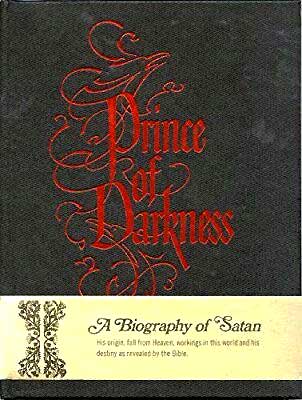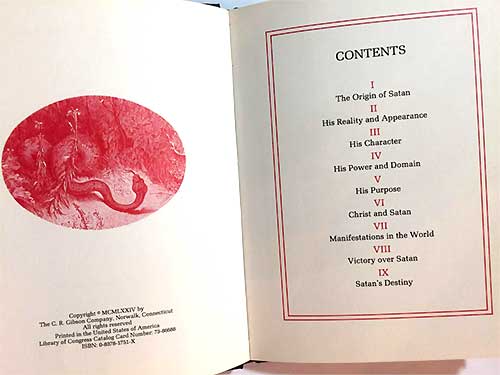 By ROGER ELWOOD (The C.R. Gibson Company; 1974)
By ROGER ELWOOD (The C.R. Gibson Company; 1974)
The first thing that strikes one about this book is its look: it’s a beautifully designed hardcover, heavily illustrated with red tinged etchings by the great Gustave Dore (taken from his late 19th Century Bible illustrations) and various medieval religious frescoes, and featuring mighty handsome typesetting. The text, alas, doesn’t live up.
The book purports to be a biography of the title character, who’s also known as Satan, Lucifer, Adversary and many other names. The author was Roger Elwood, the author of the notorious ANGELWALK who at the time of this book’s publication was the most prolific science fiction anthology editor in existence. It’s been claimed that Elwood spent an average of two weeks from start to finish on his anthologies, and I strongly doubt he spent much more time on PRINCE OF DARKNESS, which clocks in at around 55 pages (there are no page numbers), most of them taken up with illustrations and Biblical quotes.
Elwood was of course a devout Christian who was known to edit the work of his contributing writers to make it comply with his views. That means he truly believes what he writes of in PRINCE OF DARKNESS, which sets the book apart from more academic studies of Hell and Satan.
All the highlights of Satan’s existence, as detailed in the Bible, are covered here. That includes the casting out of Heaven after Satan, an angel, attempted to lead a rebellion against God. Since then he’s dedicated himself to tempting mankind into doing wickedness, as “The sinful nature of every human being on the face of the Earth gives him easy entrance.” The 1970s were apparently an especially Satan-friendly age, what with the decade’s witchcraft chic and rise in alternative religion. Not to worry, though, because it’s been pre-ordained in the Bible that Satan is destined to be defeated, and end his days in a lake of fire.
This book is essentially a textual sermon, and every bit as solemn and boring as you might expect. Its overriding flaw is one that tends to afflict quite a few religious texts, starting with PARADISE LOST: the fact that it lavishes so much time on the Prince of Darkness, thus making him the book’s hero, a fact that remains constant regardless of how many admonitions Elwood includes.

